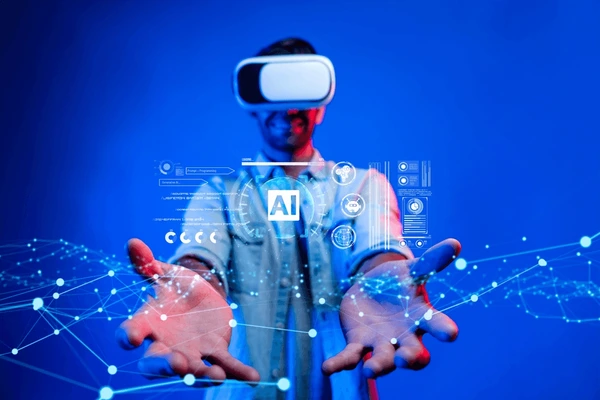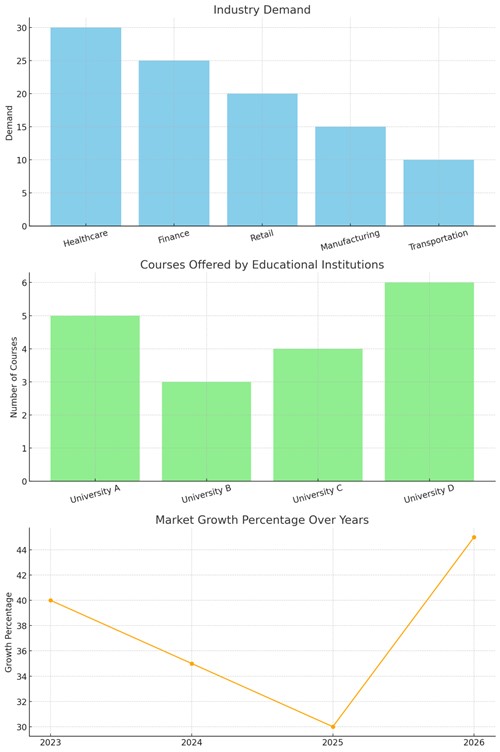
How to Become AI Engineer After 12th in India?
- Posted by 3.0 University
- Categories Artificial Intelligence
- Date December 12, 2024
- Comments 0 comment
In a time of rapid technological growth and change, the field of artificial intelligence (AI) presents a significant opportunity for future engineers, showing a change in the job market and what society needs. The path to becoming an AI engineer needs a strong grasp of tricky algorithms, math ideas, and programming languages, which are the base of Artificial Intelligence courses after 12th grade.
Besides, the other key questions asked by any aspirant these days, particularly, if he or she aims for an engineering course, are:
- How to become an AI Engineer?
- Are there Artificial Intelligence courses after 12th Grade?
- How to become AI ML Engineer?
- How can I become an AI engineer?
- How to Become AI Engineer in India after 12th?
- Which degree is best for AI engineer?
As students think about how to be AI ML engineers, they should not only look for learning but also build a flexible mindset that can handle fast-changing technologies. The situation in India is especially rich, giving students many paths to follow their interests and skills in AI.
With appealing job opportunities and chances for new ideas, the key question is: What degree is best for an AI engineer? Our investigation aims to clarify this route, offering a detailed view of educational needs and smart choices that are important for achieving success in this lively area.
Overview
Here’s a well encompassed synopsis of the rising demand for AI engineers and the significance of pursuing a career in Artificial Intelligence.
Many industries, like healthcare and finance, use artificial intelligence more and more to make operations better, help with decision-making, and customize customer experiences.
This increasing demand signifies a profound shift in the production and delivery of products and services. Therefore, choosing a career in artificial intelligence is not just a way to grow personally but also a chance to help with innovation and social progress.
People who are skilled in AI and machine learning can advantage of this growing job market, especially since many schools now offer special AI courses after high school. Therefore, becoming an AI engineer, especially in places like India, requires a clear understanding of educational opportunities and job market trends, making it an important and beneficial pursuit.

The visualizations show three distinct aspects:
- Industry Demand: This bar chart illustrates the demand across various industries, with healthcare leading at 30, followed by Finance and Retail.
- Courses Offered by Educational Institutions: This bar chart presents the number of courses available at different universities, highlighting University D with the highest offering of 6 courses.
- Market Growth Percentage Over Years: This line chart depicts the fluctuation in market growth percentage from 2023 to 2026, showing a decline until 2025 before rising again in 2026.
These visualizations collectively provide insights into current industry demands and educational opportunities while also indicating projected market growth trends.
Educational Pathways
Becoming an AI engineer is a complex process that requires a thorough understanding of educational options.
1- After finishing 12th grade, students should focus on certain courses that match their goals in Artificial Intelligence.
2- Enrolling in a bachelor’s degree program in Computer science, information technology, or a related field equips individuals with the fundamental knowledge required for utilizing AI technologies.
3- Additionally, taking specific AI courses after 12th grade can improve technical skills, especially in machine learning and data analysis.
4- Gaining practical experience through internships or projects helps students apply their theoretical knowledge in real-life situations. As previously stated, success does not occur by accident.
5- Indiscriminately, it implies the utmost involvement of hard work, persistence, learning, studying, and sacrifices. Most importantly, it highlights the importance of dedication and passion in this challenging educational journey.
Eventually and essentially, choosing the right degree, taking the proper courses, and gaining hands-on experience are key steps toward becoming a successful AI engineer.
Institution | Degree | Duration (Years) | Location | Website |
Massachusetts Institute of Technology (MIT) | Bachelor’s in computer science and engineering | 4 | Cambridge, MA | https://www.mit.edu |
Stanford University | Bachelor’s in Symbolic Systems | 4 | Stanford, CA | Stanford University |
Carnegie Mellon University | Bachelors in Artificial Intelligence | 4 | Pittsburgh, PA | https://www.cmu.edu |
University of California, Berkeley | Bachelor’s in electrical engineering and computer sciences | 4 | Berkeley, CA | Home |
University of Washington | Bachelor’s in Computer Science | 4 | Seattle, WA | https://www.washington.edu |
Educational Pathways for AI Engineers
Exploration
1- Discover various degree programs and courses available after 12th grade that are essential for aspiring AI engineers, including the best degrees for an AI engineer.
2- Navigating the education space is important for students wishing to become AI engineers, especially in a world where technology changes fast. Earning a bachelor’s degree in computer science, Data Science, or Software Engineering typically provides a solid foundation in computer science.
3- Furthermore, individuals interested in this field should seek out specific Artificial Intelligence courses after completing their 12th grade, which offer hands-on training in machine learning and neural networks. Programs that emphasize math and statistics are also important, as they help explain the complex algorithms that support AI technology, which is vital for grasping data processing.
4- Exploring related areas such as robotics and cognitive science can expand one’s view, giving a better understanding of human-like intelligence. Ultimately, for individuals considering a career in AI engineering in India after completing their 12th year, selecting a robust degree program that integrates both theory and practical skills is crucial to prepare them for the challenges of this rapidly evolving field.
Skill Development
1- While setting up goals for a career in AI engineering, one should carefully move through the complex area of skill building, as this is a key part of becoming skilled in the field.
2- Many hopefuls ask, “How do I become an AI engineer?” or “What steps can I take to be an AI engineer?” The process usually starts with a focus on specialized education.
3- Taking Artificial Intelligence classes after high school is important, as it helps students understand crucial ideas like machine learning algorithms, neural networks, and data analysis methods. Additionally, gaining hands-on experience through internships or projects enables candidates to use what they have learned in real-life situations.
4- As stated in the idea that to realize the benefits of AI, we must make deliberate community-focused choices about its use, the duty to learn these skills goes beyond personal goals, needing a shared commitment to ethical use and advancement in AI technologies.
5- In the end, the question is: What degree is best for an AI engineer? The answer involves a complex path based on ongoing education and involvement.
Identification of key technical and soft skills required to excel in the field of AI and machine learning, addressing the question of how to become an AI ML engineer.
As technology changes, people wanting to be AI engineers need to build a mix of skills that include both technical know-how and soft skills. Knowing programming languages like Python and R is very important, as they are key tools for making algorithms and handling data.
It’s also crucial to have a strong grasp of statistical analysis and machine learning frameworks, which help engineers create and assess predictive models.
Still, in a field where working together and new ideas are important, soft skills like clear communication, teamwork, and critical thinking are also necessary.
These skills aid in working with people from different fields, allowing engineers to explain complicated ideas to those not in the field and to collaborate well within varied teams.
The ultimate question is how to become an AI engineer. Becoming an AI engineer requires more than just academic qualifications; it requires a comprehensive effort that encompasses a variety of skills necessary for success in a world increasingly automated, especially when considering the role of an AI-ML engineer.
And what degree is best for an AI engineer?
Conclusion
Choosing a career in artificial intelligence engineering means dealing with the challenges of fast-changing technology.
This text shows that becoming an AI engineer—a field that is very competitive and creative—requires a strong educational background with the right degrees and focused learning through specific courses after high school.
With many options to choose from, such as basic math and advanced machine learning tools, future engineers need to be flexible to succeed as AI and ML continue to evolve.
Additionally, gaining experience through internships and hands-on projects is very important, as these experiences connect book knowledge to real-world situations.
When asking how to become an AI engineer, the answer lies in ongoing education and involvement, highlighting the need for adaptability and creativity in a world that’s becoming more automated.
The visual aid included further supports this idea, blending academic success with the vital math skills necessary for excelling in AI.
Summary
A brief of the steps and considerations for students on how to become an AI engineer in India after 12th, emphasizing the importance of continuous learning and adaptation in the evolving tech landscape.
Becoming an AI engineer in India after finishing 12th grade needs careful planning and hard work.
Students should start by joining a relevant undergraduate program, like computer science or data science, to build a solid base in programming and math, which are key parts of artificial intelligence.
After gaining this basic understanding, it is important to take specialized AI courses to explore important areas, like machine learning and neural networks.
Their career must include ongoing learning, not just an education.
The tech field has been, empirically, mutating, and as much quickly, so staying updated with new technologies and methods is crucial for staying relevant.
It’s tantamount for students to seek out practical experiences, like internships and projects, to put what they’ve learned into practice.
This focus on continuous learning and adaptability will help them succeed in a fast-changing tech world.
You may also like

AI-Driven Cyber Threats

AI Education and Job Market in 2025

